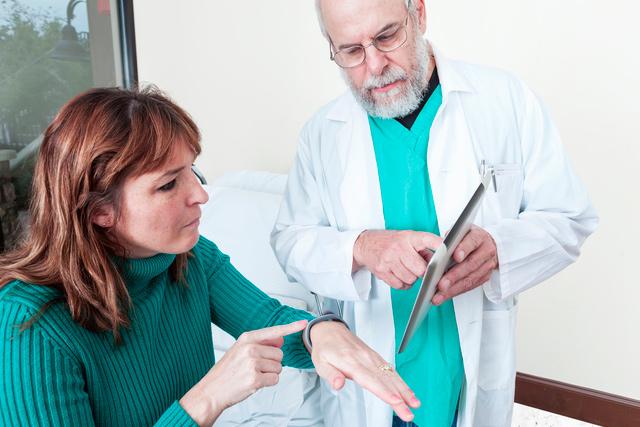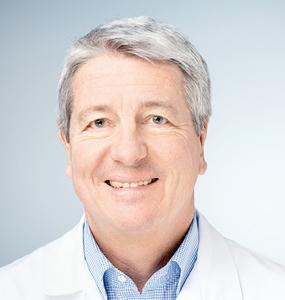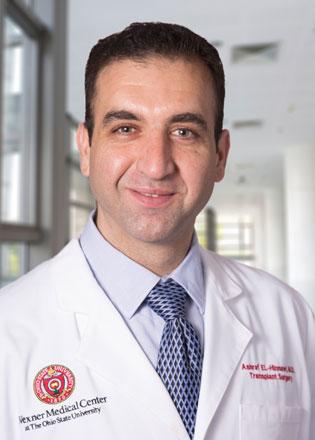You are here
Patients need practical surgical recovery advice
By Reuters - Dec 27,2018 - Last updated at Dec 27,2018

AFP photo
Patients undergoing surgery do not often receive practical advice about what to do and what to expect during the recovery process, says a surgeon who has been on the giving and receiving end of post-op instructions.
These directions need a more commonsense approach to rest, diet and pain, J. David Richardson of the University of Louisville School of Medicine in Kentucky writes in the Journal of the American College of Surgeons.
“We give patients these catchphrases about how they’ll feel better, but that’s not always true,” Richardson told Reuters Health.
After 40 years of practice as a surgeon, and having undergone 40 operations himself, Richardson sees the need for practical advice, especially as minimally invasive procedures become more popular, and patients are discharged from the hospital quickly to recover at home.
“For a long time, surgeons have been happy with surgical outcomes as long as a big issue didn’t come up, such as an infection,” he said in a phone interview. “Patients are concerned about the small aspects of recovery, and we should be attuned to that.”
One of the most important tenets of recovery, he writes in his commentary, is that it is not a progressive linear process. The advice that “You will feel better every day” is not true, for example, and it often makes patients uneasy when they do not recover as they believe they should. Instead, patients tend to have a “stuttering progression to wellness”, Richardson writes, which means three steps forward and two steps back. When patients are aware of this, they are less apprehensive and less discouraged when they have a “bad day”. Rather than measuring progress daily, he advises tracking progress from one on Friday to the next.
“Some days just don’t go that well, which is the way the body functions,” he told Reuters Health. “Patients need to know that what they’re going through is normal”.
Richardson also disagrees with the advice to recovering patients about activities, “You can do what you feel like doing.” Although it sounds practical, this often backfires or discourages patients as they go through the healing process. Some feel great after waking up but then have fatigue or adverse reactions later in the day. Those who try to drive, shop or return to work too quickly may “hit a wall”, he notes.
The body needs a physical recovery as much as a mental recovery, he notes, so he often tells patients to be cautious about performing mental tasks after a significant operation. Avoid “trying to work in a fog” or making important decisions in early post-operative stages, Richardson said.
“Earlier in my career, patients were in the hospital for days and would come in the night before surgery to prepare and discuss more details,” he said. “There’s a time pressure difference now and an enormous push to get people out of the hospital.”
Diet is another aspect that is often misrepresented, and the advice to “Eat what you feel like eating” can be too vague. Instead, a slower progression to a full normal diet could prevent nausea, vomiting, bloating, constipation and other gastrointestinal issues that occur during the early recovery phase. This is particularly true when patients are taking new pain medications, Richardson added.
On a related note, pain management can also be misleading, he said. The opioid crisis speaks to the dangers of over-prescribing pain drugs, and points to the fact that pain is an individual response. Some patients require fewer doses, and others need heavy doses, but prescriptions are often given “by the book” where one size fits all. A more nuanced, individualised approach would help, taking into account previous pain medication use, psychotropic medication use and previous operation recovery experience.
“Patients have little information about recovery in part because patients’ experiences are unique depending on their operation, fitness and psychology,” said Richard Kwasnicki of Imperial College London in the UK, who was not involved in the commentary.
Kwasnicki studies how wearable sensors can help patients during post-operative care through reassurance and motivation to complete their rehabilitation goals.
“When recovery is slow, it is often difficult to see the small incremental improvements,” he said in an e-mail.
Related Articles
AMMAN — The benefits of Enhanced Recovery after Surgery (ERAS) and the challenges to implement the protocol in hospitals were presented on t
Many patients with gallstones and abdominal pain do not feel better after a procedure to remove their gallbladder, and a recent study sugges
AMMAN — A Jordanian surgeon was part of a groundbreaking medical team that recently performed a lifesaving lung and kidney transplant in the

















